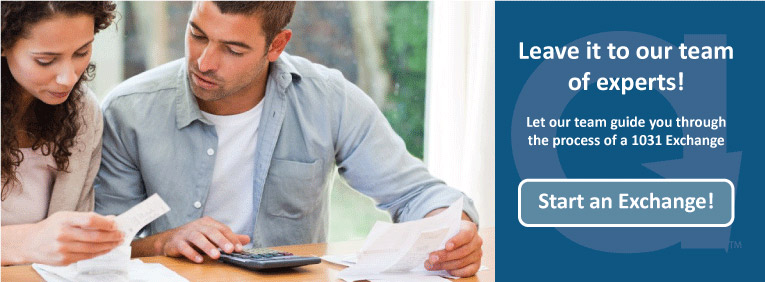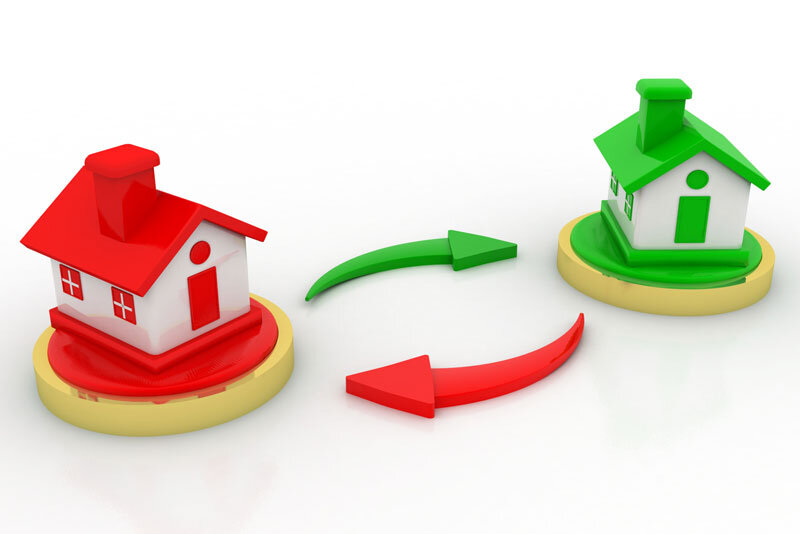A Guide About What Is A Like-Kind Exchange?
Nov 16, 2023 By Triston Martin
Like-kind swaps in 1031 Exchanges are frequently misunderstood. What are like-kind exchanges? As the market continues to improve, it appears that many investors are looking to switch to a different type of real estate investment. This is for those who want to know about What Is a Like-Kind Exchange?
A Like-Kind Exchange: What Is It?
For example, a like-kind exchange allows the sale of one item and purchase of another item without incurring a capital gains tax burden from the first item's sale. This might have included the transfer of a business or a tangible asset like artwork or even heavy equipment prior to the enactment of tax regulations in December 2017. When a company or investment property is traded for another property, a like-kind exchange can only be used for this purpose.
How Like-Kind Exchange Works?
Exchange of like-kind is free from federal income tax under Section 1031. Only commercial or investment real estate can now be sold under this rule, which went into effect in 2017. Because of this law, holders of these assets can trade or sell the asset and obtain a similar property without paying capital gains taxes. In addition, it permits the delay of recognition until the gain has been reclaimed. In order to be eligible for this tax break, transactions must match the following criteria:
- The property being sold must be used for business or be an investment (i.e., it cannot be a personal residence).
- The money must be put to good use by purchasing a company or an asset for investment.
- The seller has a total of 45 days after the sale to locate another property that is comparable to the one being sold, and they have up to 180 days after the sale to actually complete the purchase.
- An IRS Form 8824 must be completed by the seller in order to describe the terms of the transaction.
- Depending on that and how the property is held, the seller must declare any boot gain on Form 1040, Form 8949, or Form 4797.
Special Considerations

In addition to letting the seller put off paying taxes, a like-kind exchange lets the seller put off paying taxes on the gain from the sale of the accumulated depreciation capital property, which must be noted as income for tax purposes. Like-kind exchanges can also help a taxpayer avoid paying state taxes.
Mandatory state income tax withholding is an example of this practice in some jurisdictions, when either the buyer or seller of a property is required to pay state income taxes. However, the property exchanged in a like-kind trade may be excluded from taxation. To get the tax break, the taxpayer will have to sign a form or certificate that the state gives them. While other jurisdictions might permit the exemption from being presented at closing, some states demand that the seller submit it 20 days prior to closing.
A Like-Kind Exchange Example
Anyone wishing to sell their company and buy another one, or even a real estate investor selling a rental property in return for buying another one, would benefit greatly from doing so on the basis of like-kind exchanges. The IRS requires a completed Form 8824 outlining the conditions of the agreement. Tax forms 8949, Schedule D (Form 1040), and/or 4797 are used to report gains that are considered boot or property that is not transferred or received in a like-kind transaction. Depreciation recapture may necessitate reporting a realized gain as regular income.
A Like-Kind Alternative

Donating the property to a non-profit organization can be an alternative to a like-kind exchange. A deed or title transfer is an easy way for the property owner to make a gift. By doing this, the donor avoids paying capital gains tax and receives a tax deduction equivalent to the property's fair market value. The 1031 exchange is indeed a clever strategy for business owners to delay federal taxes as well as continue to grow the company's assets.
Conclusion
The tax advantages of a like-kind exchange are available to individuals who qualify for them. There are no limits on the number of like-kind exchanges that can be made by taxpayers, and they can defer capital gains tax forever. The IRS has very specific rules on what and when can be traded. The benefits of a like-kind exchange are overshadowed by the fact that tax consequences are unavoidable.

Feb 08, 2024
Investment
Invest in Real Estate for as Little as $1,000
Take the first step towards investing in real estate. We'll show you how to get started and answer any questions about investing in this world with a one-time investment starting at low cost of just $1,000

Feb 08, 2024
Investment
High-Yield Muni Bond ETFs
Exchange-traded funds (ETFs) that invest in high-yield municipal bonds make their investments in the debt, or other local government bodies

Dec 14, 2023
Investment
Decoding the Investment Duel: Fidelity vs. Schwab
Embark on a journey to decode the battle between Fidelity and Schwab. Our simplified guide delves into the nuances, helping you strategically decide where to grow your wealth.

Nov 10, 2023
Mortgages
U.S. Bank Personal Loans
If you are a client of U.S. Bank and have a FICO score of 660 or better, then a personal loan from U.S. Bank may be something you want to consider. This creditor has advantageous conditions, and after applying, you can have the money you need within a few hours at the most.

Oct 14, 2023
Mortgages
Client Explanations on Soaring Interest Rates and Real Estate
In a competitive free market, government-backed and private lenders bid against one another for homeowners' business, causing fluctuations in the average monthly mortgage interest rate. Due to stable property prices, tightened lending restrictions, and a decreasing backlog of unsold properties, the average interest rate on 30-year fixed mortgages have remained around historic lows since 201

Oct 13, 2023
Banking
Definition of Online Bill Pay
Online bill pay is a payment or banking service that allows you to pay your bills online through a bank account, often without cost. It will simplify your finances by removing the requirement to write checks or divide and count the paper currency.

Jan 13, 2024
Investment
What is CrowdStreet and How to Use it?
Let’s understand the basics of real estate investing with CrowdStreet. Learn how this platform helps investors to make contributions to the commercial real estate market.

Nov 26, 2023
Banking
5 Ingenious Money Moves You Should Make Before You Travel
Before you travel, it is wise to plan your trip financially so that you don’t overspend. It is also wise to set your finances in order to ensure your trip is as seamless as possible.

Oct 11, 2023
Taxes
What Is a Personal Exemption: An Eccentric Guide
Each individual the taxpayer provided was exempt from taxation up to the amount of money set aside for subsistence. To claim personal immunity, the taxpayer must demonstrate that their spouse or dependents meet specific criteria.

Nov 16, 2023
Investment
A Guide About What Is A Like-Kind Exchange?
It is possible to avoid paying capital gains taxes by trading one asset for another in a like-kind exchange. For tax purposes, like-kind exchanges are closely scrutinized by the IRS and require correct bookkeeping to avoid any penalties. Like-kind exchanges can be used to defer other sorts of profits, like as depreciation, by savvy sellers. In a like-kind swap, taxes are postponed rather than avoided. The seller is able to postpone the recapture of any depreciation on the transaction if it is a like-kind exchange.

Feb 07, 2024
Taxes
How To File Back Tax Returns With The IRS
Don't let back taxes get you down. Get the answers to your questions about filing back tax returns with the IRS and how to stay on top of the process.

Feb 07, 2024
Mortgages
Homeownership Assistance Missouri
This provides a comprehensive guide to homeownership programs in Missouri. It covers a range of assistance programs available for first-time buyers and existing homeowners, explains how to apply for these programs, what to expect after application, and offers helpful tips and resources for homeowners. It concludes with a short FAQ section answering critical queries about buying a house in Missouri, loan requirements, and the concept of home rule in the state.